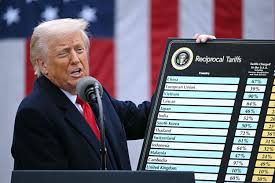The Federal Government has issued a warning to Ministries, Departments, and Agencies over non-compliance with asset documentation standards, announcing plans to address Nigeria’s N39 trillion negative net asset balance through the establishment of a comprehensive National Assets Register.
This was disclosed by the Accountant-General of the Federation, Dr. Oluwatoyin Madein, on Tuesday at a one-day sensitization workshop in Abuja.
The workshop, aimed at improving asset documentation across MDAs, was themed “Legacy Assets Rendition and Preparation of Stand-Alone Financial Statements by MDAs.”
It brought together finance directors and senior financial officers to discuss strategies for accurately cataloging the nation’s assets.
A negative net asset position occurs when total liabilities exceed total assets, a situation that the government aims to rectify with more rigorous asset management and reporting.
The establishment of the National Assets Register is expected to provide a clearer picture of Nigeria’s financial health and improve transparency in public sector asset management.
Madein explained that Nigeria’s negative net asset position, where liabilities exceed assets, is a result of inadequate data on federal assets. The lack of comprehensive asset documentation has contributed to the country’s N39 trillion shortfall, which the government plans to rectify by establishing a National Assets Register.
“Consequently, we still have huge negative net assets in our 2021 consolidated financial statements which stood at N39tn,” she said.
Although Nigeria adopted the International Public Sector Accounting Standards accrual basis in 2016, a significant number of assets remain unrecorded, resulting in the reported N39 trillion negative net asset position in the 2021 consolidated financial statements.
Madein noted that slow asset reporting from MDAs has hampered the accuracy and timeliness of financial statements, undermining efforts to address the asset deficit.
To resolve this issue, she announced the creation of a National Assets Register, which will catalog all government-owned assets, including buildings, land, roads, hospitals, schools, and equipment.
She emphasized that the National Assets Register is crucial, as it will provide transparent financial statements essential for international donors, investors, and economic stakeholders with an interest in Nigeria.
She said, “We need to take a good inventory of these assets. The financial statement the federal government gives must be accurate, comparable and useful.”
MDAs have been given a compliance deadline of December 31, 2024, to submit stand-alone financial statements, which must include statements of financial position, financial performance, and cash flows.
“It’s an annual thing, but for now, because it has been due for some time, and it was observed that some MDAs have not been able to render, that is exactly why we are here, to come together in this workshop to discuss on the way forward.
“So, it is expected that after this workshop, we will go back and submit the inventory of assets, which will be evaluated and placed in the financial statement on or before 31st December 2024,” she said.
The Office of the Accountant-General emphasised that non-complying MDAs may face sanctions.
She said, “The AGF’s office will initiate measures to enforce compliance. Sanctions will be applied to non-complying MDAs that continue to delay these critical renditions. By adhering to these directives, MDAs can contribute meaningfully to the national interest while avoiding any penalties associated with non-compliance.
“The strategic importance of legacy asset rendition cannot be overstated. Unfortunately, the pace of rendition by Ministries, Departments, and Agencies has been disappointingly slow. This delay hampers the timeliness and accuracy of the consolidated financial statements and significantly impacts our ability to address the net asset deficit. As expected, MDAs are therefore urged to expedite action on the rendition of legacy assets.”










